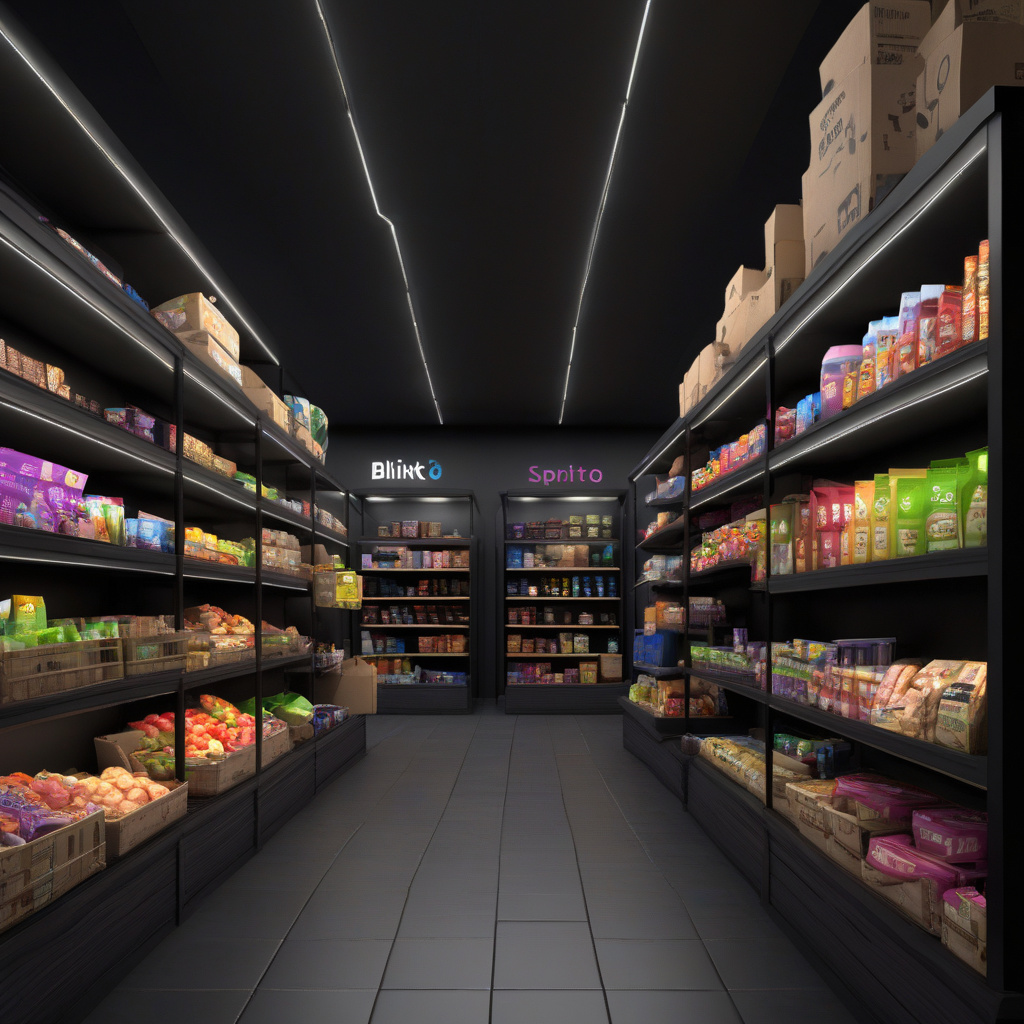Blinkit, Zepto and Other Q-Comm Players Illuminate the Dark Store Phenomenon
In the rapidly evolving landscape of quick-commerce, companies like Blinkit, Zepto, and others are redefining the retail experience, particularly through the utilization of dark stores. These warehouses, dedicated solely to fulfilling online orders, have become a focal point for innovation and scrutiny alike. As consumer demand for instant delivery grows, so too does the responsibility of these platforms to ensure hygiene, safety, and transparency in their operations.
The surge in popularity of quick-commerce platforms like Bigbasket, Blinkit, and Swiggy Instamart reflects an ongoing shift in consumer behavior, where convenience and speed reign supreme. However, this rapid expansion has not come without its challenges. Regulatory scrutiny is intensifying, driven by rising concerns from food companies and consumers alike regarding the quality and safety of products sourced from dark stores.
Dark stores are not open to the public; instead, they function as fulfillment centers, allowing companies to stock products closer to urban centers to ensure faster delivery times. This model presents unique challenges, particularly around hygiene and storage practices. As consumer trust is paramount, companies are now compelled to enhance their operational standards.
To address these concerns, platforms like Blinkit and Zepto are implementing rigorous hygiene checks and storage protocols across their dark stores. The regulatory environment has prompted these companies to reevaluate their internal practices and invest in better compliance measures. For instance, following recent audits, Blinkit has ramped up its leadership oversight, ensuring that every layer of management is involved in maintaining cleanliness and safety standards.
Moreover, some platforms are taking transparency a step further by opening their dark stores to customer inspections. This initiative not only fosters trust among consumers but also serves as a proactive measure to assure regulatory bodies that they are maintaining high operational standards. By allowing customers to see the inner workings of their dark stores, these companies aim to build a level of confidence that their products are stored and handled correctly.
Zepto, another key player in the quick-commerce space, is not far behind in implementing similar measures. With an operational model that prioritizes speed, Zepto recognizes the importance of aligning its practices with regulatory expectations. The company has adopted a strategy where regular audits are conducted, and lapses are addressed promptly. This commitment to accountability is critical, especially in an industry where public perception can make or break a brand.
In addition to hygiene checks and audits, the use of technology plays a crucial role in enhancing operational efficiency within dark stores. Advanced inventory management systems allow these companies to track product freshness and storage conditions in real-time. By utilizing data analytics, quick-commerce platforms can optimize their supply chains, ensuring that customers receive the best quality products without delay.
The rise of dark stores is not only a response to consumer demand but also a reflection of how retail is transforming in the digital age. As the competition intensifies, platforms must navigate not only consumer expectations but also the regulatory landscape that governs food safety. The scrutiny surrounding dark stores emphasizes the need for transparency and accountability in the quick-commerce sector.
As these companies continue to innovate, the focus remains on balancing speed with safety. The ongoing adjustments to hygiene practices, leadership audits, and customer inspections highlight the industry’s commitment to maintaining high standards. The spotlight on dark stores is likely to remain, as both consumers and regulators expect nothing short of excellence from quick-commerce platforms.
In conclusion, the evolution of quick-commerce players like Blinkit, Zepto, and others in managing their dark stores is a testament to their adaptability in a competitive market. By addressing hygiene and storage concerns proactively, they not only enhance customer trust but also solidify their positions in a fast-changing retail environment. As the future unfolds, the focus on dark stores will continue to shape the quick-commerce narrative, pushing companies to meet and exceed the expectations of all stakeholders involved.
#QuickCommerce #DarkStores #RetailInnovation #FoodSafety #ConsumerTrust
